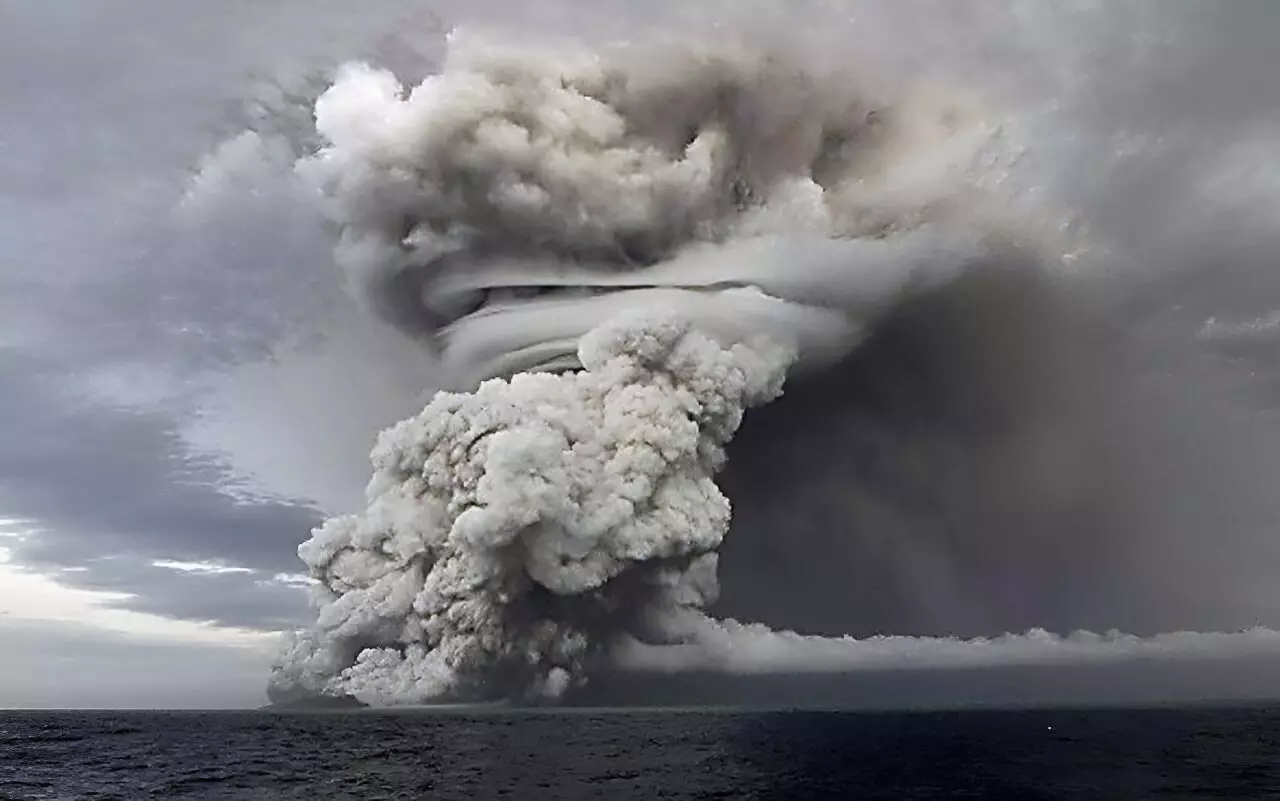The recent research conducted by a team including Texas A&M University atmospheric scientist Dr. Andrew Dessler sheds light on the climate impact of the 2022 Hunga Tonga volcano eruption. The study challenges existing assumptions about the effects of the eruption and provides new insights into how volcanic events can influence the Earth’s climate.
Historically, large volcanic eruptions have been known to have significant cooling effects on the global climate by blocking sunlight with their aerosols. The Hunga Tonga eruption, however, presented a unique scenario as a submarine volcano that injected a vast amount of water vapor into the stratosphere. This increase in stratospheric water content by about 10% raised questions about the potential impact of water vapor as a powerful greenhouse gas.
Contrary to initial speculation that the water vapor from the eruption might have contributed to extreme global warmth, the team’s research, published in the Journal of Geophysical Research: Atmospheres, revealed that the eruption actually led to a cooling effect on the Earth. The analysis of NASA and NOAA satellite data showed that more energy left the climate system than entered it, resulting in a slight cooling effect.
The findings of the research have important implications for understanding climate change. By debunking the theory that the eruption caused extreme warmth in 2023 and 2024, the study reinforces the idea that human-induced greenhouse gas emissions are the primary driver of climate change. This emphasis is crucial in the face of ongoing debates and misinformation about the root causes of global warming.
Need for Continued Investment
The study also highlights the importance of continued investment in satellite-based stratospheric measurements. The researchers emphasize that the understanding of the Hunga Tonga eruption was made possible by the investments made in stratospheric satellite measurements by NOAA and NASA over the past two decades. However, there is a need to be cautious about a potential ‘stratospheric data desert’ as critical instruments are not being replaced.
Unresolved Questions and Future Research
While the research provides answers to some important questions, it also raises new ones. The unexpectedly low levels of sulfur dioxide produced by the eruption and the minimal impact on the 2023 ozone hole are unresolved issues highlighted by the researchers. The persistence of water vapor in the stratosphere beyond model predictions indicates that there is still much to learn about stratospheric circulation processes.
The research on the climate impact of the 2022 Hunga Tonga volcano eruption offers valuable insights into the complex interactions between volcanic events and the Earth’s climate system. By critically analyzing the data and challenging existing assumptions, the study contributes to our understanding of climate change dynamics and underscores the importance of continued research and precise data to address the challenges ahead.


Leave a Reply